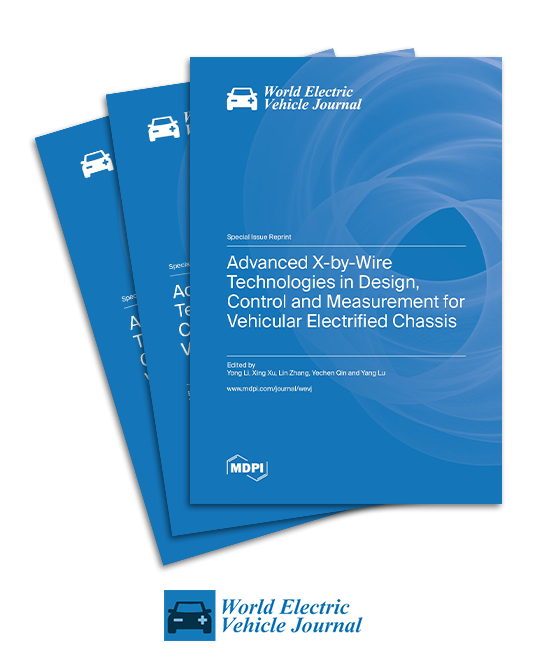The 38th International Electric Vehicle Symposium & Exposition
Important dates
|
Opening of the abstract submission platform |
June 3rd, 2024 |
|
Deadline for abstract submission |
November 1st, 2024 |
| Final extended deadline for abstract submission | December 8th, 2024 |
|
Notification of acceptance/rejection |
February 26th, 2025 |
|
Deadline for presenter registrations |
March 26th, 2025 |
|
Deadline for submission of full articles |
April 28th, 2025 |
Topics
- Electric Vehicles
- Plug-in Hybrid Vehicles
- Hybrid Electric Vehicles
- Fuel Cell electric Vehicles
- Heavy Duty electric Vehicles & Buses
- Light electric Vehicles & Micro Mobility
- Electric Two- & Three- Wheelers
- Welfare & Senior electric Vehicles
- Off-Road & Industrial electric Vehicles
- Railway Vehicles
- Electric Ships & Airplanes
- Retrofitting EVs
- EU Policy, Regulation & Harmonised Laws
- International Standardisation
- Global Policy & Trade
- Consumer Behaviour & Demand
- Skills, Education, Labour & International Knowledge Transfer
- Business Models for Charging & Payment (incl. Roaming and QR Codes)
- Business Models for Vehicle Sales
- Trends & Forecasting of E-Mobility
- Supply & Value Chain
- Infotainment systems and trends
- Artificial intelligence for EVs
- Intelligent Transportation System for EVs
- Autonomous xEV
- V2V, V2I (Infrastructure), and V2P (Persons) Communication
- Electric autonomous vehicle safety and security
- Cybersecurity
- Digital twin design tools
- AI & New Technologies
You can’t have one without the other - in order for EV uptake to become a thriving reality, we need an efficient and reliable infrastructure. This is especially true of charging and fueling. Come and discover advancements, challenges, and opportunities surrounding the backbone that powers innovative modes of transportation!
- AC & DC Charging technology
- Smart charging
- V2H & V2G
- Smart grid integration and grid management
- Fast and Megawhatt charging Infrastructure
- Inductive / Wireless Power Transfer
- Optimal charging locations
- Batteries
- Battery Management System
- Super Capacitors
- Energy storage systems
- Fuel Cell Systems
- Drive & Propulsion Systems
- Electric Motor Drive
- Electric Machine
- Auxiliary Components & Sensors
- Vehicle Motion & Stability Control
- Chassis systems for EVS
- Power Electronics systems
- Power Semiconductor Devices & Highly Integrated Modules
- Wide Band Gap Devices & Related Issues
- Packaging, Cooling, & Heat Transfer
- Magnetics, Capacitors, Bus Bar, & 3D Integrations
- Sensors for Motors & Converters
- Harnesses, Connectors, & Protection/Distribution Devices
- Electromagnetic Compatibility
- Modelling & Simulation
- Measuring Methods & Equipment
- Energy management
- Thermal management
- Advanced control of EVs
- Human-Machine/computer interactions
- Environmental Impact
- Climate change
- Recycle & Re-use
- Life Cycle Analysis
- Sustainable Energy
- Health and Safety Considerations
- Social equity
- Battery manufacturing
- Vehicle manufacturing
- Design for second life
- Mega factories
- Mining
- Materials for EVs
Presentation format
Accepted authors for both Lecture and Dialogue sessions will submit a full paper for publication at equal level in the EVS38 Proceedings. These papers will be presented in Lecture and Dialogue sessions during the symposium.
Lecture Session
Oral presentation
- A Lecture presentation is an oral presentation in an auditorium a topical sessions of the official Symposium program
- Presentation time will be scheduled after review.
Dialog Session
Poster presentation
- A dialogue presentation is a poster based presentation on a large flatscreen and part of topical sessions of the official Symposium program.
- Presentation time will be scheduled after review.
General conditions
- Abstracts must be written in clear English.
- All abstracts must be submitted online. (Attached PDF + online submission) - In addition to the online submission through the abstract form, all submissions must include a long abstract that extends over 700 to a maximum of 1000 words This requirement is mandatory for all submissions.
- Abstract titles should be brief and reflect the content of the abstract.
- Ensure that your abstract is grammatically correct and free of typographical errors.
- Please check the presenting author when you type the author information online.
- If you do not receive an e-mail confirmation, it means we have no record of your submission. If you are sure you made a submission, check the e-mail address that you used to make your submission.
- The presenting author will be underlined in the program and serve as the contact for further correspondence with authors.
- After notice of acceptance has been sent, all presenters are also required to register and pay the registration fee in order to be included in the program and to present on site. Registration and payment of registration fee by presenters of accepted abstracts must be completed no later than March 26, 2025
- Authors of accepted abstracts will be required to submit a full paper by April 28, 2025.
EVS38 scientific Secretariat
If you have any difficulties with submitting your file, please contact the Secretariat.
E-mail:

Free publication in the world electric vehicle journal
Selected papers will have the chance to be published in the World Electric Vehicle Journal (WEVJ), as recommended by the EVS38 Scientific Committee.
The publication fee for WEVJ will be covered by the EVS38 organizing committee.
The WEVJ is a recognized scholarly publication released quarterly online by MDPI, a distinguished publisher of peer-reviewed, open-access journals.